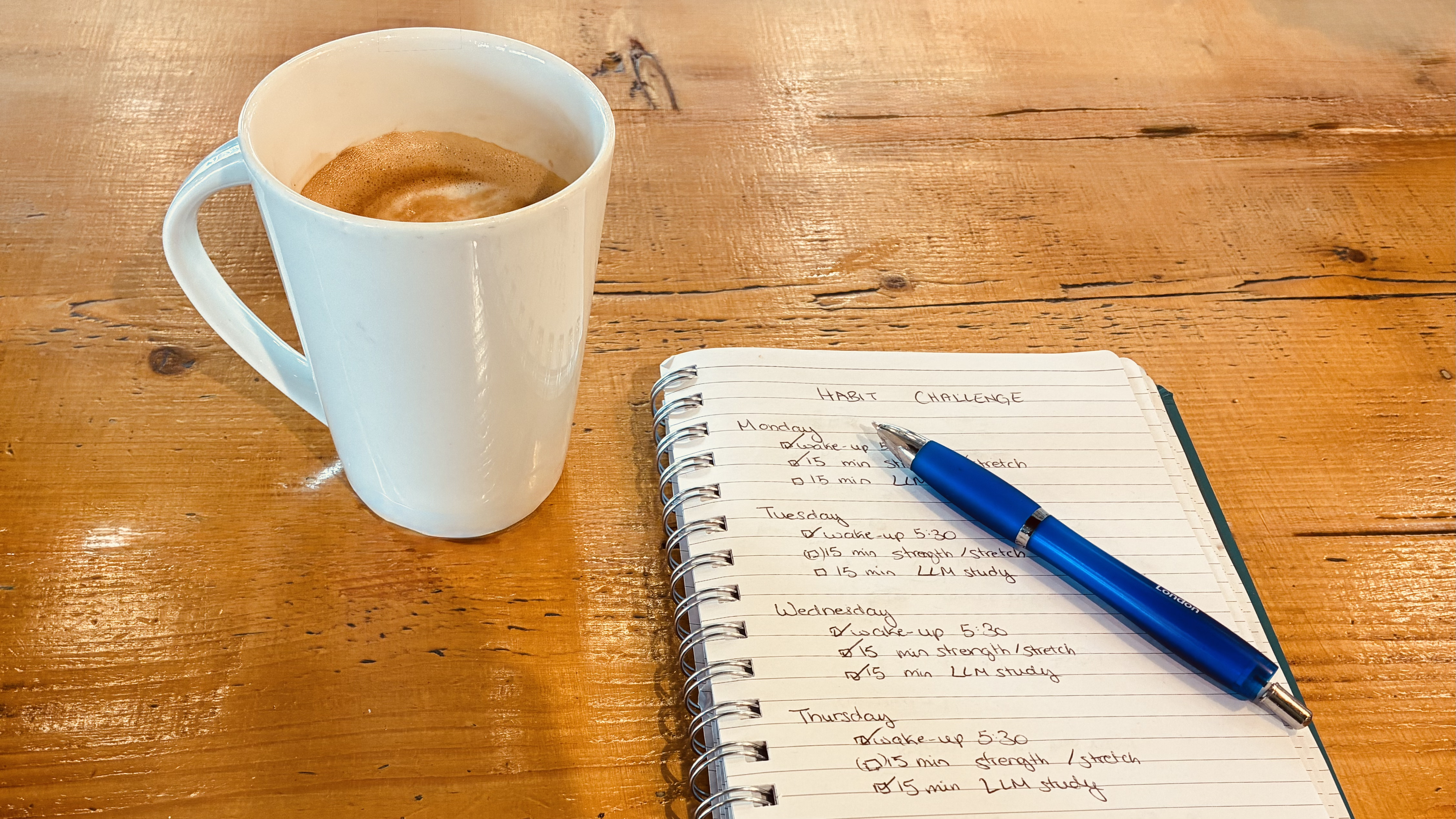Breaking the Procrastination Cycle

There is magic in believing you can become a better version of yourself.
We have all felt this magic on New Year’s Eve — the thrill of a fresh start and the promise of finally becoming the person we aspire to be. But that excitement often gives way to dismay a few weeks later when we realise, once again, that deeply ingrained habits won't change just because the calendar did.
As a pragmatist, I generally avoided New Year’s resolutions. I certainly avoided publicising them. The fear of disappointment felt too great.
But after our recent book club on Atomic Habits by James Clear, I decided to run a four-week habit challenge with the Women Coding Community. The concept was simple: each participant wrote down their name and the habits they wanted to form in a shared spreadsheet. Progress would be tracked daily and weekly.
The timing was perfect. I had recently joined an LLM Engineering course in the community but had struggled to get started. So my first habit was: 15 minutes of LLM Engineering study per day. Following Clear’s advice, I made it as easy as possible — not quite the 2-minute version he recommends, but 15 felt like the sweet spot: long enough to get immersed, short enough to feel easy.
My second habit was more ambitious: waking up at 5:30 a.m. every day except Saturday. I had done this occasionally when work piled up, and I loved the feeling of accomplishing something significant before the world was awake.
And the third: 15 minutes of strength or stretching exercises twice a week. I am a runner, and I know strength training prevents injury and improves speed — but I find these exercises incredibly dull. Still, surely I could manage 15 minutes.
So… Did It Work?
Yes and no. I did not have a 100% success rate. But I did make meaningful changes — some I had not anticipated.
The most impactful shift? I began using a timer — setting it for 15 minutes (or even just 5 or 10 minutes) whenever a task felt overwhelming. This simple trick helped me start, which was often the hardest part. In fact, this article was written with the help of a 10-minute timer.
The exercise habit? I “cheated” — by getting a gym membership at a place with a strict no-cancellation policy for classes within 4 hours. No room for last-minute hesitation. Of course it is not really cheating. But booking 2–3 fitness classes per week was far easier than convincing myself to work out at home. And being in a group setting naturally pushed me harder.
The 5:30 a.m. wake-ups lasted about a week before I revised my goal to 6:30. As much as I loved those early mornings, I was too short on sleep to continue. Still, waking up at 6:30 has become a welcome and sustainable habit.
In the end, it was the LLM study goal that led to the most impactful shift in my morning routine. Instead of taking my latte to go, I brought my laptop and stayed at the café. That small change created a space for focus, and what began as 15-minute study sessions soon turned into 1–2.5 hour stretches of deep, uninterrupted work.
Ironically, the LLM study habit worked too well — I made real progress in the course but began falling behind on other commitments, including my volunteer work for Women Coding Community.
I went from squeezing in an hour of volunteering in the evenings to regularly spending 8 to 17 hours a week at coffee shops — learning, organising events, and steadily working through the most tedious items on my to-do list.
The Result?
I feel different. I feel capable. I created space in my week to actually follow through on the things I care about — and that has transformed my self-esteem. The cycle of procrastination has started to reverse.
We might not be able to reinvent ourselves overnight. But we can keep experimenting — and the more we try, the more we learn what works for our unique personalities. When we find those tiny shifts that lead to meaningful results… that really does feel like magic.
